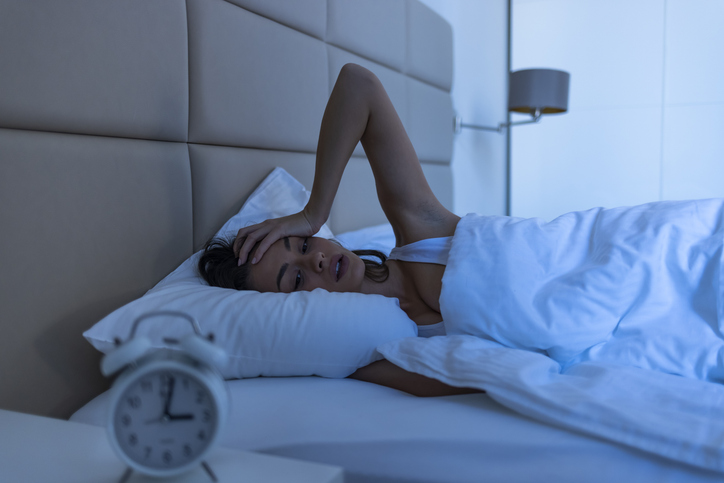Can Poor Sleep Make You Eat More?
If you are tired, you are more likely to reach for an unhealthy snack or just eat too much.

Many of us suffer from menopausal symptoms, stress and poor sleep and if concerned about weight gain then this is the worst possible combination.
But did you know that it is the poor sleep that could make you eat more and affect your weight? It seems that loss of sleep can make you eat more – and no I don’t mean on healthy salads or green vegetables!
Studies have shown that total sleep deprivation can trigger a reward system in the brain in response to food stimuli.
Study results
Until recently researchers didn’t know if there was a similar relationship between everyday sleep loss and the brain’s reaction to food so they looked at volunteers who entered a nine-day study period with a built-up sleep debt. It was published in the Journal of Sleep Research.
Under ideal sleep conditions, scientists were able to show two things: that even small amounts of sleep loss can put the brain at risk for hyperactivation to food triggers in everyday life, which could be a risk factor for obesity and lifestyle diseases.
These include metabolic disorder, the first step toward diabetes. Yet on the flip side getting the right amount of sleep appears to reduce this hypersensitivity to food stimuli.
Another study, published in the Journal of Applied Psychology, added stress to the mix. Researchers found that when people were anxious and stressed, whether at work or home, they were more likely to ‘eat their feelings’ if they were also sleep-deprived. Sadly, again that is likely to be unhealthy choices like sweets, processed foods and alcohol.
Simply put, if you don’t get enough sleep, unhealthy food choices may look pretty good to your brain. So getting enough sleep is not only better for focus, but for your waistline, too.
What’s considered enough sleep? For most people that’s between seven and eight hours every night.
Helpful information:
We know there is a definite link between lack of sleep and increased weight, and unfortunately at Menopause both weight gain and poor sleep patterns are common.
Definitely getting your menopausal symptoms under control will be a great first step to tackling the hot flushes and sweats that can disturb even the best nights sleep.
You may need help from progesterone, which is a natural relaxant to help you sleep, or more help from a combination of both progesterone and oestrogen if it is severe flushes keeping you awake.
This article can also offer some helpful tips.
https://anna.blog.wellsprings-health.com/the-complete-guide-to-a-good-nights-sleep/



















